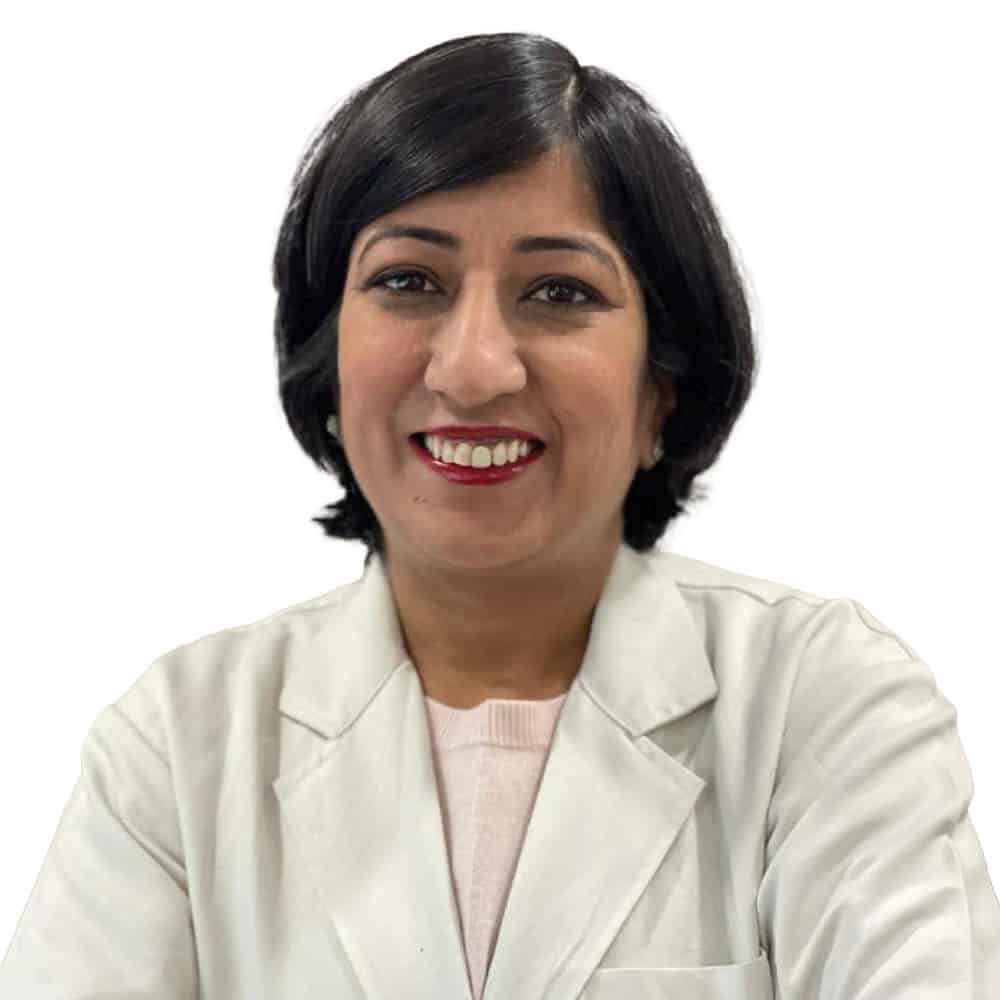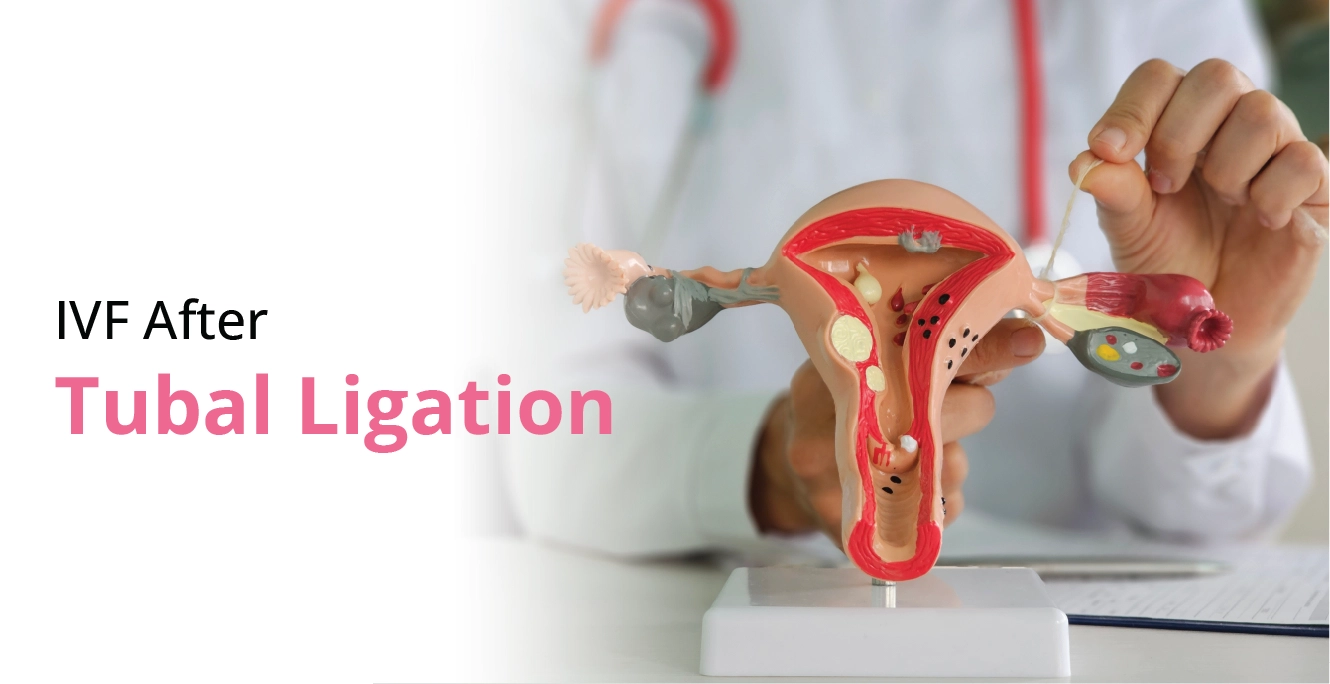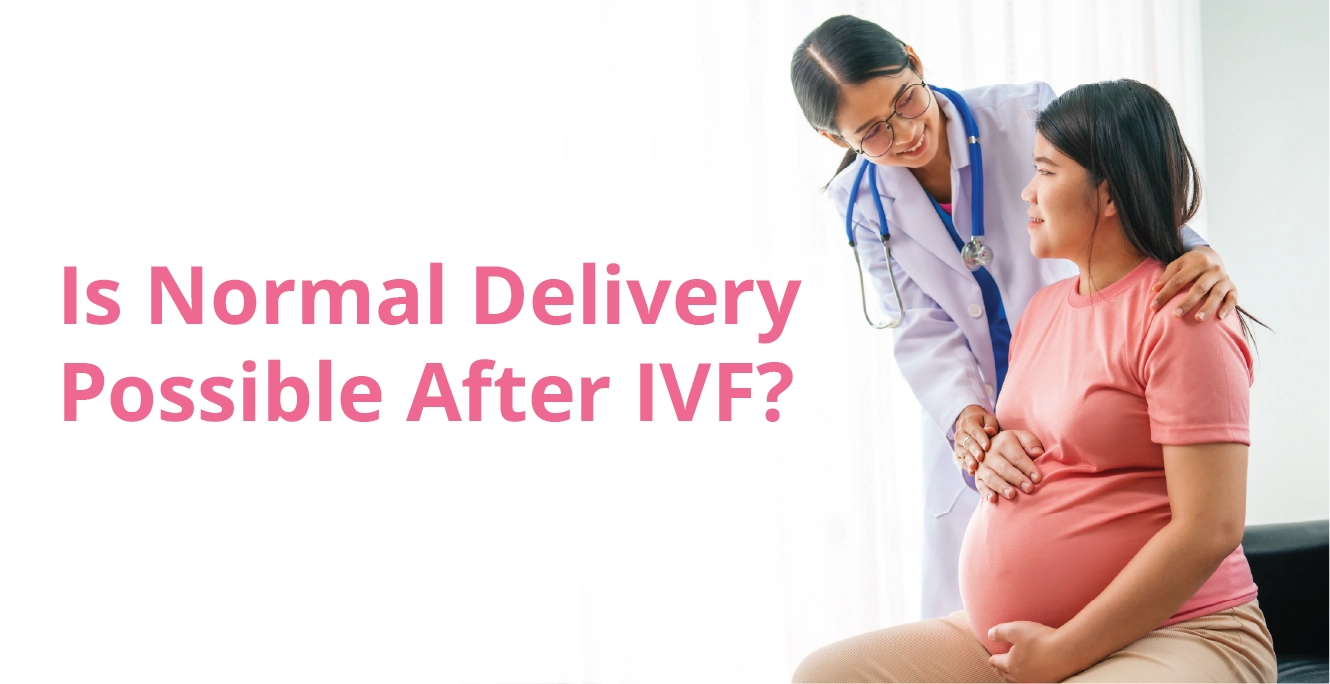Does IVF Impact Breastfeeding?

Table of Contents
- Why Breastfeeding is Important?
- Does IVF Impact Breastfeeding?
- 5 Common Myths Related to IVF & Breastfeeding
- # Myth 1: IVF mothers cannot breastfeed effectively
- # Myth 2: The hormone medications used in IVF suppress milk supply
- # Myth 3: IVF babies require formula for feeding and can’t thrive on breastfeeding
- # Myth 4: C-section after IVF prevents breastfeeding
- # Myth 5: IVF mothers do not produce sufficient milk to feed the baby
- Breastfeeding Challenges For Mothers Conceived Via IVF
- Tips for Successful Breastfeeding After IVF
- A Note to New Mothers…
Holding her baby for the first time is one of the most precious moments in a mother’s life. The bond between a mother with her newborn cannot be expressed in words and breastfeeding becomes one of the most intimate ways to nurture that bond. Every motherhood journey is unique. Some may have a comparatively smoother experience while for others it may come with some challenges.
For women who have conceived through IVF (In Vitro Fertilisation), this journey often comes with added anxiety and questions. “Will I be able to breastfeed properly?” “Do IVF hormones affect my milk?” “Is breastfeeding safe for me and my baby?”
Let’s uncover the truth behind these concerns and separate facts from myths surrounding breastfeeding after IVF.
Why Breastfeeding is Important?
Breast milk is considered the first and most complete nutrition for a newborn. It not only feeds the baby but is filled with proteins, fats, vitamins, and antibodies that help protect babies from infections and diseases.
| World Health Organisation (WHO) Recommends:
Breastfeeding for the first six months of life, followed by continued breastfeeding with complementary foods up to two years or beyond, supports the healthy growth of the baby. |
Besides this, breastfeeding also offers numerous benefits to the mother.
- It helps the uterus return to its normal size faster.
- It helps reduce postpartum bleeding.
- It lowers the risk of breast and ovarian cancers.
- It also releases oxytocin, the “love hormone,” which promotes emotional bonding and relaxation.
Whether you have a natural pregnancy or you have conceived through IVF, the advantages of breastfeeding remain the same.
Does IVF Impact Breastfeeding?
It is a common concern of many women that IVF might affect their ability to breastfeed. But the fact is, IVF itself does not directly interfere with milk production or breastfeeding capability.
However, a few factors linked to IVF might influence the early stages of lactation:
- Age and underlying fertility issues: Some women of higher age or having hormonal conditions like PCOS or thyroid issues may experience a temporary effect on the production of milk.
- Delivery method: IVF pregnancies are sometimes associated with higher rates of C-sections or premature deliveries, which can delay the initial milk “let-down.”
- Emotional stress: The IVF journey can be long and emotionally overwhelming for many women. This may contribute to stress or fatigue, which can temporarily affect breastfeeding
Despite these factors, most women who have become mothers through IVF can successfully breastfeed with the right medical guidance and support.
5 Common Myths Related to IVF & Breastfeeding
Let’s bust some of the most common myths about breastfeeding after IVF and uncover the facts.
# Myth 1: IVF mothers cannot breastfeed effectively
Fact:
This is not true. The ability to produce milk or the body’s natural response to childbirth is not affected by IVF. There is a drop in the levels of oestrogen and progesterone once the placenta is delivered. This allows prolactin, the milk-producing hormone, to take over, and the process occurs irrespective of how conception happened.
# Myth 2: The hormone medications used in IVF suppress milk supply
Fact:
Fertility drugs that are administered during IVF, e.g., oestrogen, progesterone, and gonadotropins, are normally stopped at the time of delivery. Such medications do not have a lasting effect on milk production during the postpartum period. When you start breastfeeding, by that time your body has metabolised these hormones.
Lactation-controlling hormones (prolactin and oxytocin) are not affected by IVF drugs. However, if you are still on certain medications for hormonal support post-transfer, it is best to discuss with your doctor whether they affect breastfeeding; in most cases, they do not.
# Myth 3: IVF babies require formula for feeding and can’t thrive on breastfeeding
Fact:
This is a myth and not supported by any scientific evidence. Whether you have conceived naturally or through IVF, breastfeeding has tremendous benefits for your baby, which cannot be replaced by anything else. Breast milk is considered a complete nutrition. Supplemental feeding is only needed in specific cases, such as premature birth, low birth weight, or medical complications, not because the birth is through IVF.
# Myth 4: C-section after IVF prevents breastfeeding
Fact:
C-section deliveries have become common, and many IVF deliveries happen via C-section due to medical precautions. This does not stop the mother from breastfeeding. The only challenge is that it may take a bit longer for milk to come in after surgery. Gentle skin-to-skin contact immediately after birth and early latching can encourage milk flow. Pain management and proper positioning, such as side-lying or football hold, can also help.
# Myth 5: IVF mothers do not produce sufficient milk to feed the baby
Fact:
Every woman has a unique journey to becoming a mother, and their breastfeeding experiences can also differ. Some mothers may experience a slight delay in lactation or low milk supply in the beginning. This may happen irrespective of IVF. The reasons could be stress, fatigue, or infrequent feeding. This does not mean that you cannot breastfeed successfully.
Breastfeeding Challenges For Mothers Conceived Via IVF
IVF is not a barrier for mothers in breastfeeding. However, there may be some challenges that need to be tackled with patience and the right support.
- There can be a delay in lactation. This may happen particularly after C-sections or preterm births, but delay does not mean no lactation.
- IVF journeys can be emotionally demanding and cause anxiety that may interfere with the let-down reflex (milk ejection reflex).
- Improper latching or dryness can cause nipple pain during breastfeeding. Using nipple creams or adjusting the position of the baby often helps.
- Conditions like PCOS or thyroid disorders may temporarily reduce milk supply.
- In cases of NICU (Neonatal Intensive Care Unit) admission, mothers may need to express (pump out) milk regularly to store it and maintain supply. However, this milk can be used to feed the baby through a bottle or feeding tube in the NICU.
It is normal to feel concerned, but with the right guidance and support from your healthcare team, your motherhood journey can be made smoother, and these challenges can be tackled.
Tips for Successful Breastfeeding After IVF
Breastfeeding after IVF is possible. It just needs awareness and support. Here are some tips that can make it easier for you.
- Try to start breastfeeding within the first hour of your baby’s birth if possible. Early skin-to-skin contact helps your baby latch and also improves milk production.
- Feed every 2–3 hours or as required. Regular feeding prevents engorgement (painful overfilling) and establishes a smooth supply.
- A well-balanced diet with proper hydration helps support lactation and recovery.
- If you have pain in the nipples, difficulty latching, or inadequate flow of milk, seek help from a lactation consultant.
- Staying calm helps facilitate oxytocin release that is important for the “milk ejection reflex”. Deep breathing exercises, gentle walking and counselling help.
- Your body will take time to adjust after IVF and childbirth. Have faith in the process and do not compare your experience with that of others to avoid stress.
Still have doubts or facing any discomfort, such as insufficient milk supply, sore nipples, or stress? Speak to our leading fertility specialists & gynaecologists at Birla Fertility & IVF.
A Note to New Mothers…IVF does not directly impact breastfeeding, and it is completely possible to breastfeed your baby after IVF. In fact, it is good for both the baby’s and the mother’s health. All you need is to stay calm and get proper medical assistance. IVF is an advanced fertility treatment that has helped millions of couples become parents. It is a safe process and will not reduce your natural capacity to feed your child. |
Our Fertility Specialists
Related Blogs
To know more
Birla Fertility & IVF aims at transforming the future of fertility globally, through outstanding clinical outcomes, research, innovation and compassionate care.
Had an IVF Failure?
Talk to our fertility experts

 Our Centers
Our Centers


















